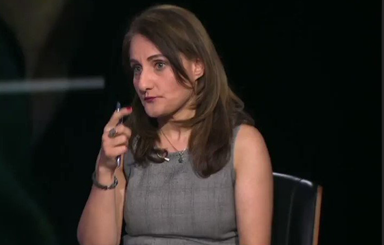The Killing of Solmaz Abbasi: for requesting a divorce, the high price of independence
By: Rezvan Moghaddam
Date of Incident: Saturday, June 28, 2025
Location: Law Office in Urmia, Iran
Victim: Solmaz Abbasi, volleyball coach
Accused: Her husband
Method: Stabbing, motivated by opposition to divorce
In another harrowing case of femicide in Iran, Solmaz Abbasi—a well-known women’s
volleyball coach in Urmia—was stabbed to death by her husband. The killing took place
inside a law office, where Solmaz had gone to pursue legal proceedings for her divorce.
According to local sources, the husband viciously attacked and killed her after learning
of her intention to separate. He then attempted suicide.
In a society where women must navigate dangerous terrain to escape abusive
relationships, requesting a divorce is still seen by many men as a threat to their “honor.”
Under Article 1133 of Iran’s Civil Code, a man may divorce his wife at any time simply
by going to court and paying her financial entitlements (such as dowry, alimony, and
compensation). In contrast, a woman can only file for divorce under limited and often
difficult-to-prove conditions (such as hardship, addiction, abandonment, violence, or
long-term imprisonment). Even then, courts rarely grant such requests.
In Iran, a woman’s demand for divorce can be a death sentence. Solmaz’s killing is a
direct attack on a woman’s fundamental right to leave an unsafe and unhealthy
relationship.
It is deeply tragic that this killing occurred in the law office—one of the few relatively
safe spaces for women seeking divorce. This incident underscores that even within
formal legal processes, women in Iran remain unprotected. The absence of a
comprehensive law against gender-based violence, the lack of safe shelters, and a
patriarchal legal system have left women like Solmaz Abbasi isolated and vulnerable.
Though human rights advocates have long called for reform, such demands remain
unrecognized in Iranian law.
This is not the first time a woman from the sports community has been targeted by
domestic violence. Patriarchal norms that perceive independent, successful women as
threats fuel even greater violence. In Iran, women’s achievements are often met not
with celebration but with surveillance, intimidation, and even death.
Solmaz Abbasi was more than a volleyball coach. She was a woman trying to escape
violence. But the law, society, and culture all stood in her way.
Like so many others, she asked for freedom—and was answered with death.
Call to Action by the Stop honor Killings Campaign:
We demand:
Immediate, transparent, and public investigation of this case by the police and
judiciary
Full disclosure of the victim’s identity to engage public support
Inclusion of clear legal provisions criminalizing severe gender-based violence
Creation of a national database for unidentified or overlooked victims of violence
Immediate passage of a comprehensive law to protect women from violence
Training for judges, police, and media on the nature of gender-based violence
Establishment of safe houses for women at risk
Implementation of a warning system and safety guarantees for women under
threat
Expansion and strengthening of support organizations and free legal services for
women seeking divorce
seeking divorce
#StopHonorKillingsCampaign
#SafetyForWomen
#WomenHaveTheRightToLive
#NoToViolenceAgainstWomen
#IslamicRepublicIsResponsible
#NoToControlOverWomensBodies
#NoToMisogynisticCulture
#PatriarchyKills
#SolmazAbbasi
#IranWithoutViolence
Follow news in the Stop honor Killings Campaign Telegram group:
https://t.me/stophonorkilling
Support the Stop honor Killings Campaign with Your Donations via PayPal:
https://paypal.me/stophonorkillings?country.x=US&locale.x=en_US
Stop honor Killings Campaign


















